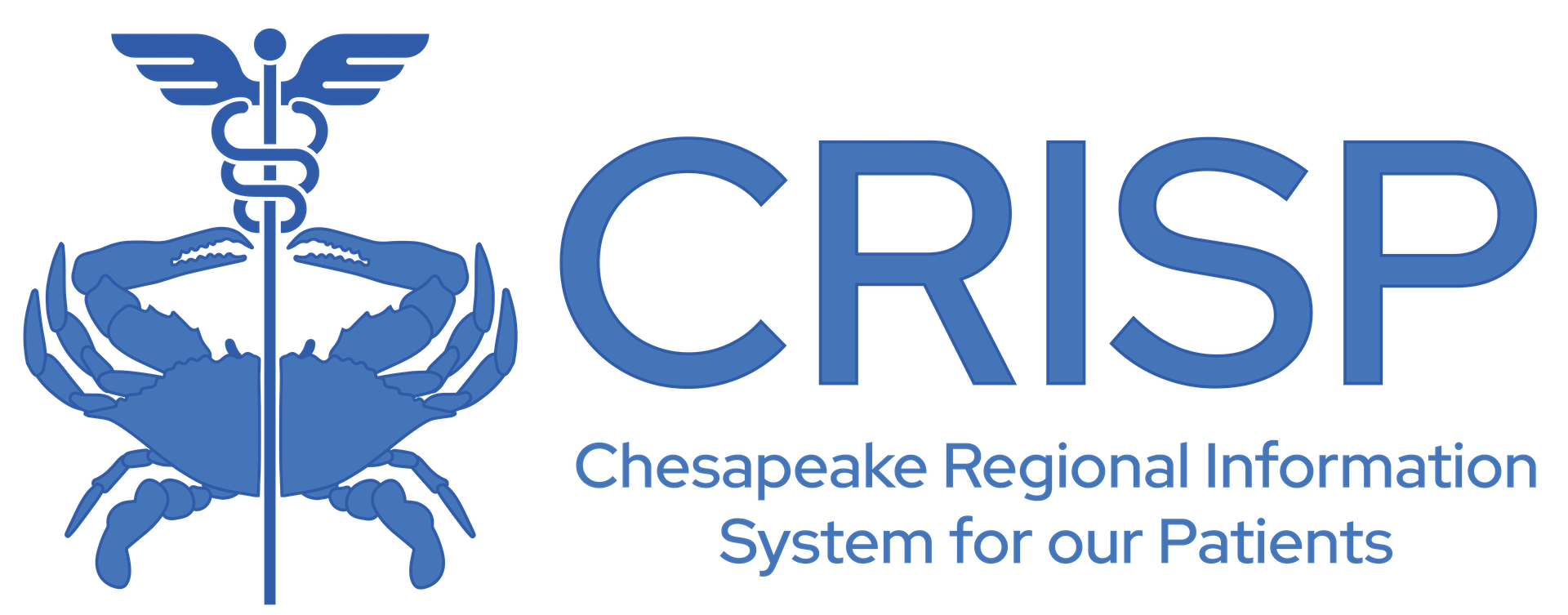ALERT PORTAL USERS: Please navigate directly to portal.crisphealth.org if you are attempting to login into the CRISP Portal

Quick Navigation
View Topics & Resources
Explore Topics
Other Resources
The Episode Care Improvement Program (ECIP) is a voluntary track under the Care Redesign Program (CRP). ECIP allows a hospital to link payments across providers during an episode of care. Maryland based ECIP on CMS’s Bundled Payments for Care Improvement Advanced (BPCI Advanced) program.
ECIP Aligns with CTI Policy
Beginning in CY 2023, key elements of ECIP evolved to align with Maryland Care Transformation Initiative (CTI) policy. CTIs reward hospitals for generating total cost of care savings through the interventions they deploy. The HSCRC treats each ECIP clinical episode category as a 90-day Care Transitions CTI in which the anchor event is excluded from the episode. ECIP episodes take precedence other CTI definitions—the HSCRC does not allow a hospital to have overlapping episodes.
For CY 2023 performance and beyond, a hospital’s ECIP performance is aggregated with the performance of other CTIs for the period, as described in the CTI Introduction Policy Guide. ECIP payments for the period July through December 2022 were the final set of results identified separately from CTI. Results for January through June 2023 were incorporated into aggregate CTI performance with payments reflected in the July 2024 MPA adjustment. Quality and post-episode monitoring for January through June 2023 will be reflected in the July 2025 MPA adjustment. ECIP results for July through December 2023—including quality and post-episode monitoring adjustments—will be incorporated into aggregate CTI performance with payments reflected in the July 2025 MPA adjustment.
Hospitals may keep the full aggregated ECIP and CTI savings they produce below the target price. However, hospitals are required to exceed a minimum savings threshold before the State makes any payments. The minimum savings rate is based on the total volume of ECIP and non-panel CTI episodes completed during a given six-month period. The variable minimum savings rate based on aggregate episode volume is included as Exhibit 25 in CTI Specifications and Methodology (Minimum Savings Rate % and Episode-Based CTI Volume).
CRP Waivers
To participate in ECIP, hospitals must sign a CRP Participation Agreement with the State of Maryland and the Centers for Medicare and Medicaid Services (CMS). CRP provides fraud and abuse waivers—relating to Federal physician self-referral law and Federal anti-kickback statute—to a hospital that has signed a CRP Participation Agreement. The HSCRC made policy changes to ECIP beginning for CY 2023, requiring hospitals to share incentives with care partners and/or provide significant resource sharing to care partners. The new requirement ensures hospitals are leveraging the fraud and abuse waivers central to CRP. Close to half of participating hospitals are opting to share incentives with care partners in CY 2025.
ECIP Care Partners
The eligible providers for ECIP certification include general or specialist physicians, clinical nurse specialists, nurse practitioners, physician assistants, physical therapists, skilled nursing facilities, home health agencies, long-term care hospitals, hospices, and inpatient rehabilitation facilities. ECIP emphasizes post-acute care coordination and outcome improvements after discharge, involving not only physicians and advanced practice nurses but also engaging post-acute care facilities like physical therapists.
ECIP Episodes
ECIP offers hospitals a choice of participating in 23 clinical episode categories. In CY 2025, hospitals selected 7 clinical episode categories on average. Some of the most commonly selected clinical episode categories are congestive heart failure, cervical spinal fusion/combined anterior posterior spinal fusion/spinal fusion (non-cervical), and major joint replacement of the lower extremity/double joint replacement of the lower extremity.
ECIP - Care Transformation Profiler Webinar
- Fifteen hospitals are participating in ECIP in CY 2025:
| Anne Arundel Medical Center | University of Maryland Baltimore Washington Medical Center |
| Doctors Community Hospital | University of Maryland Capital Region Medical Center |
| Garrett Regional Medical Center | University of Maryland Charles Regional Medical Center |
| Greater Baltimore Medical Center | University of Maryland St. Joseph Medical Center |
| Holy Cross Hospital | University of Maryland Upper Chesapeake Medical Center |
| Meritus Medical Center | University of Maryland Shore Regional Health Easton |
| University Of Maryland Medical Center | University of Maryland Rehabilitation and Orthopaedic Institution |
| University of Maryland Medical Center Midtown |
- ECIP earned incentives have increased over time. The table below shows results for each six-month reconciliation period since ECIP launched in January 2019:
| 2019 | 2020 | 2021 | 2022 | 2023 |
|---|---|---|---|---|
| $1,403,364 | $2,176,741 | $3,114,108 | $4,690,858 | $5,577,694 |
Program Approach
Episodic Payment Approach
The Episode Care Improvement Program (ECIP) allows a hospital to link payments across providers during an episode of care. Maryland modeled ECIP on CMS’s Bundled Payments for Care Improvement Program Advanced. ECIP’s bundled payment approach is designed to align incentives across hospitals, physicians, and post-acute care facilities to generate savings and improve quality through better care management during episodes, eliminating unnecessary care, and reducing post-discharge emergency department visits and hospital readmissions. ECIP provides hospitals with the opportunity to provide incentive payments to care partners that help achieve these goals.
ECIP Track Implementation Protocol
ECIP requires hospitals to share earned incentive payments with their care partners or provide a significant amount of care management resources or other intervention resources to their care partners.
The ECIP Track Implementation Protocol (ECIP 2025 Track Template) outlines the parameters of the program. Hospitals have a high degree of flexibility to design their initiatives within those parameters.
ECIP Case Study
The Greater Baltimore Medical Center (GBMC) showcased in their ECIP Case Study and GBMC ECIP Summary a significant success in cost reduction and quality improvement for joint replacement and fracture patients through Maryland’s Episode Care Improvement Program (ECIP). Key factors included early interdisciplinary collaboration, stakeholder engagement, leveraging quality metrics, and having a dedicated ECIP manager. Challenges involved initial staff buy-in and data availability, but GBMC’s achievements offer valuable insights for hospitals implementing the ECIP program.
ECIP Calendar
Key deadlines are set by the CRP Calendar. The calendar is provided below. Please contact care.redesign@crisphealth.org with questions.
| Hospital Deadlines | Activity |
|---|---|
| 4/3/25 | Care Partner Vetting to determine eligibility for participate (provider participation July through December 2025) |
| 8/29/25 | Care Partner Vetting to determine eligibility for participate (provider participation CY 2026) |
| 12/16/24 | Care Partner Certification to identify participating care partners who will have a care partner agreement with hospital (provider participation January through June 2025) |
| 6/17/25 | Care Partner Certification to identify participating care partners who will have a care partner agreement with hospital (provider participation July through December 2025) |
| 12/16/25 | Care Partner Certification to identify participating care partners who will have a care partner agreement with hospital (provider participation January through June 2026) |
| 3/14/25 | CRP Report (Q3 - Q4 of 2024) |
| 9/12/25 | CRP Report (Q1 - Q2 of 2025) |
| 10/31/25 | Implementation Protocols for CY 2026 (Performance Period 11) |
| 10/31/25 | Participation Agreements for hospitals new to CRP |
| 11/3/25 | Hospitals Begin to Make Incentive Payments to Care Partners for CY 2024 (PP9) |

